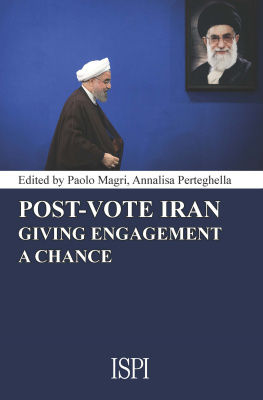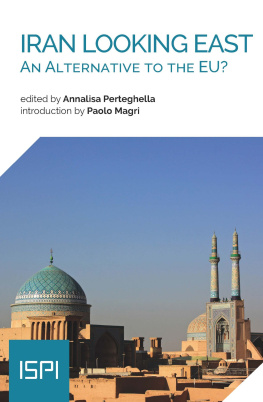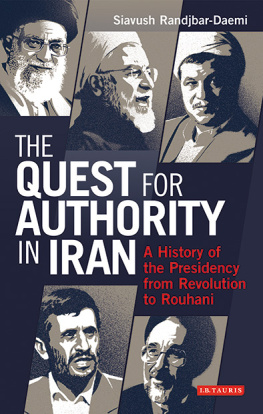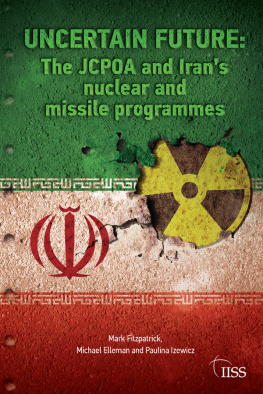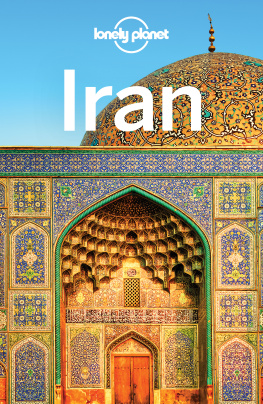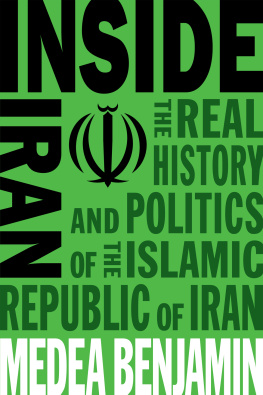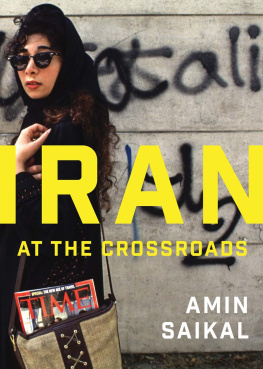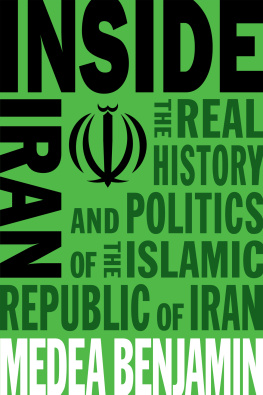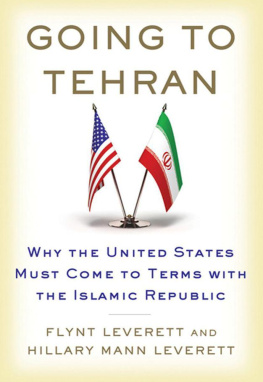Introduction
2017 marks a milestone in recent Iranian history. In January, while the Joint Comprehensive Plan of Action (JCPOA) entered the second year of implementation, in Washington the new hawkish Administration took office, with the promise to renegotiate a disastrous deal. In May, in Tehran, the incumbent president Hassan Rouhani won re-election by a wide margin. In the same month, the US although reluctantly renewed the much-awaited waivers lifting the US sanctions, as agreed in the JCPOA.
The events of the first half of the year draw a clear-cut picture of the current situation.
In Tehran, a pragmatic and moderate government is keeping up with its commitments under the JCPOA, while making an effort to open up its country to new economic and political actors. As president Rouhani put it, he will keep up the promise of a constructive engagement. These efforts have been widely acknowledged and rewarded in the February 2016 legislative election, as well as in the May 2017 presidential election, thus signalling the desire of the Iranian population to re-engage with the world.
Unfortunately, the same is not true of Washington, where the Trump Administration keeps sending contradictory signals. While the State Department has renewed the waivers and certified Irans compliance with the JCPOA, new sanctions are under scrutiny in the US Congress, finally freed from the veto threat of Barack Obama. Not to mention US President Trumps first foreign trip to Israel and Saudi Arabia, the two staunchest enemies of the Iran deal. Trumps alignment with the Sunni side of the Gulf can only raise new fears in Tehran.
Against this backdrop, an actor is increasingly at unease with the revamped cold war between Iran and the US: the European Union. With the signing of the JCPOA in July 2015, the EU and its Member States could breathe a sigh of relief as finally sanctions against Tehran were removed. Good news for the EU businesses which had been deeply penalized by the sanctions. On top of this, the mediation role played by the European External Action Service was widely recognized and praised. A diplomatic success for an actor like the EU often described as an economic giant but a political dwarf. It comes as no surprise that, in the aftermath of Trumps election, the EU HR/VP Mogherini made a vow to protect the JCPOA. And, ever since, she has repeatedly pointed out that the EU remains strongly committed to the implementation of the deal. Indeed, EU-Iran relations have improved since the signature of the deal, as the number of state visits between Iran and numerous European countries demonstrates. Moreover, the leading role played by Iran in the region a neighbour of our neighbours clearly calls on the EU to strengthen the dialogue with Tehran with the aim of stabilizing a wide arc of crisis which extends all around its Southern borders.
Bearing this in mind, this Report intends to trace what lies ahead for Iran after the May 2017 Rouhanis re-election. The analysis builds upon the assumption that Iran does not act in a vacuum: the US, as well as the EU actions, will inevitably help define the future trajectory of the country. A trajectory which is set domestically also by the generational transition Tehran is going through, with its Supreme Leader, Ayatollah Ali Khamenei, looking for a successor. The inter-factional struggle affecting Iran since the early years of the Revolution is now revived by what is actually at stake: the very future of the Islamic Republic.
Pejman Abdolmohammadi opens the Report by investigating how Iranian political factions have repositioned themselves after the elections. While Rouhanis victory has certainly tilted the balance of power in his favor, it has also incited the Conservatives and the Hardliners counteroffensive. Will the president be able to implement his policies or will the system push back? Indeed, beyond the electoral and the day-to-day political dynamics, a question lies deep: can the revolutionary state sustain itself amidst a growing number of domestic and regional challenges? A key passage will definitely be the succession to the Supreme Leader Ali Khamenei. This chapter addresses this issue too by exploring if and to what extent Rouhani will be able to set the stage for a pragmatic succession to Khamenei, or rather if the Hardliners and the other actors representing the deep state namely the Islamic Revolutionary Guard Corps (IRGC) will succeed in reclaiming the reins of power.
In this process, a crucial topic is the future of the Iranian economy. Indeed, the economy of the country has always played a leading role in setting the condition of the countrys political developments. Rouhanis electoral victory, in both 2013 and 2017, made no exception: in 2013, it was exactly the promise to bring to an end the Ahmadinejads era of economic hardship that brought Rouhani to power. In this years electoral round, it was the promise of capitalizing on the benefits stemming from the sanctions relief. However, the countrys economy suffers from structural problems that ultimately hamper its full recovery. Eugenio Dacrema reviews the achievements and the shortcomings of the last two governments, highlighting some structural constraints, such as the overexpansion of the state sector. The author also tries to gauge the real impact of sanctions relief on the Iranian economy: which results have been achieved so far? What remains to be done? Which obstacles are still there for international investors? How does the Iranian economy affect politics (and vice versa)?
The third chapter, by Annalisa Perteghella, shifts the spotlight to Tehrans role in the region. The signing of the JCPOA, as well as Rouhanis re-election, have been greeted as an ultimate success for the moderates, who, the argument went, once empowered would have broadened their agenda of moderation to include cooperation on thorny regional issues. However, if we look at the last years regional developments the revamping of the Syrian crisis, as well as the often-forgotten Yemeni war Tehran has not always played a cooperative game. This is due to a plurality of factors, which are scrutinized in this chapter, which ultimately intends to assess whether Iran can be considered more of a spoiler or a security broker in the region.
But, needless to say, any analysis of Irans role in the region, as well as of Irans future, cannot forgo to take into account the traditionally complicated if not openly conflictual relationship between Iran and the United States. In the fourth chapter, Sanam Vakil analyses the possible implications of the November 2016 election of Donald Trump to the White House for the future of the JCPOA. By acknowledging that much of the hostility between the two countries is due to a mutual lack of understanding, the author presents both the view from Washington and the view from Tehran. After a wide review of the points of friction between Iran and the US, Vakil sheds a light on what to expect in the near future, by sketching out a number of scenarios which put together the US-Iranian relations and the wider regional and international developments.

